You would think, being the daughter of a bowyer, I'd have grown up with a solid grounding in outdoor activities–and it's true that I did fish and camp as a kid (car camping anyway, and reel fishing in ponds), but my outdoor education was otherwise quite stunted and regulated to whatever they taught us in Girl Scouts. To be honest, my father's interest in archery was mostly architectural. He solved engineering problems; he didn't hunt.
When I moved to New York, I was afraid of the hills. Absent the plains–the endless sky and horizon lazily stretching miles before me–I felt claustrophobic. My go-to strategy to cope with anxiety is to immerse myself fully into it, so I spent eight months apprenticing with an herbalist, spending free weekends camping on the land, learning to walk in the dark, in the woods, nestled in the valleys.
I learned a lot, but mostly I learned how much I loved it. Later, my partner and I would spend summers exploring the Adirondacks. The special places became our special places. I haven't seen much of the world, but I say bury me in the ADX and I mean it. We tread sacred ground when we step into the Adirondack Park.
One of my favorite perennial activities has been attending the fall Becoming an Outdoors-Woman (BOW) event in New York. This year it was at Silver Bay YMCA in Silver Bay, New York. I'd never been there, but gosh is it lovely.

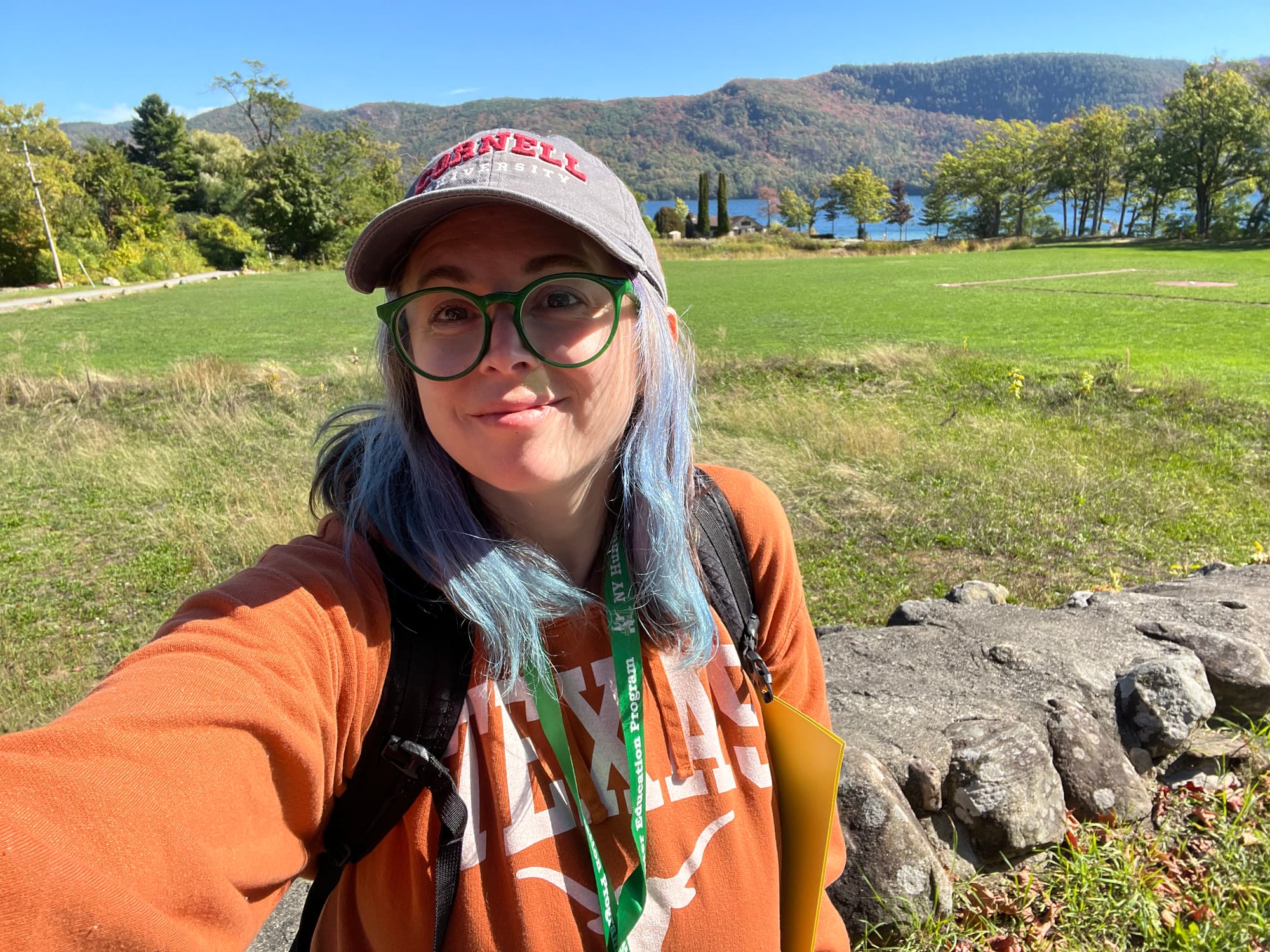





Silvery Bay YMCA in New York
At a BOW weekend, women have the opportunity to learn and try a variety of outdoors-related skills, crafts, and activities. Instructors are primarily women, which helps with the security and vulnerability it takes to try something new (I will say, the men who teach at BOW are also amazing). At BOW I've gotten to learn about firearms, including shotgun and shooting clays, trapping (and I took and passed my NYS Trapper Education course to obtain my license), and other fun skills like cooking with dutch ovens and learning about falconry.
This year, I chose workshops around fly fishing. I have gone fly fishing before with a guide, and it was super fun, but I never felt confident enough to go out on my own. After this year's BOW workshop, I purchased a rod and reel, along with some supplies for fly tying.
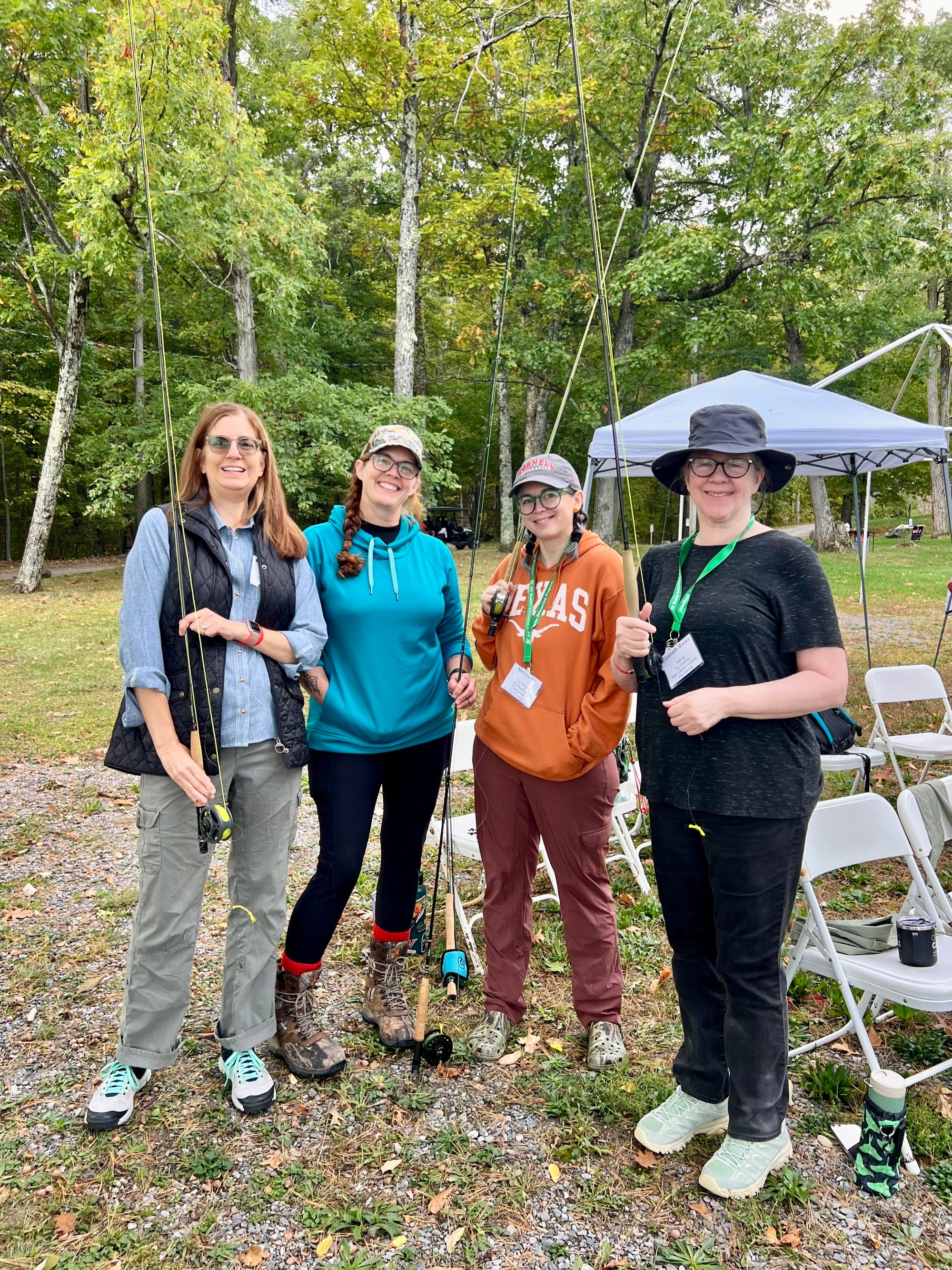
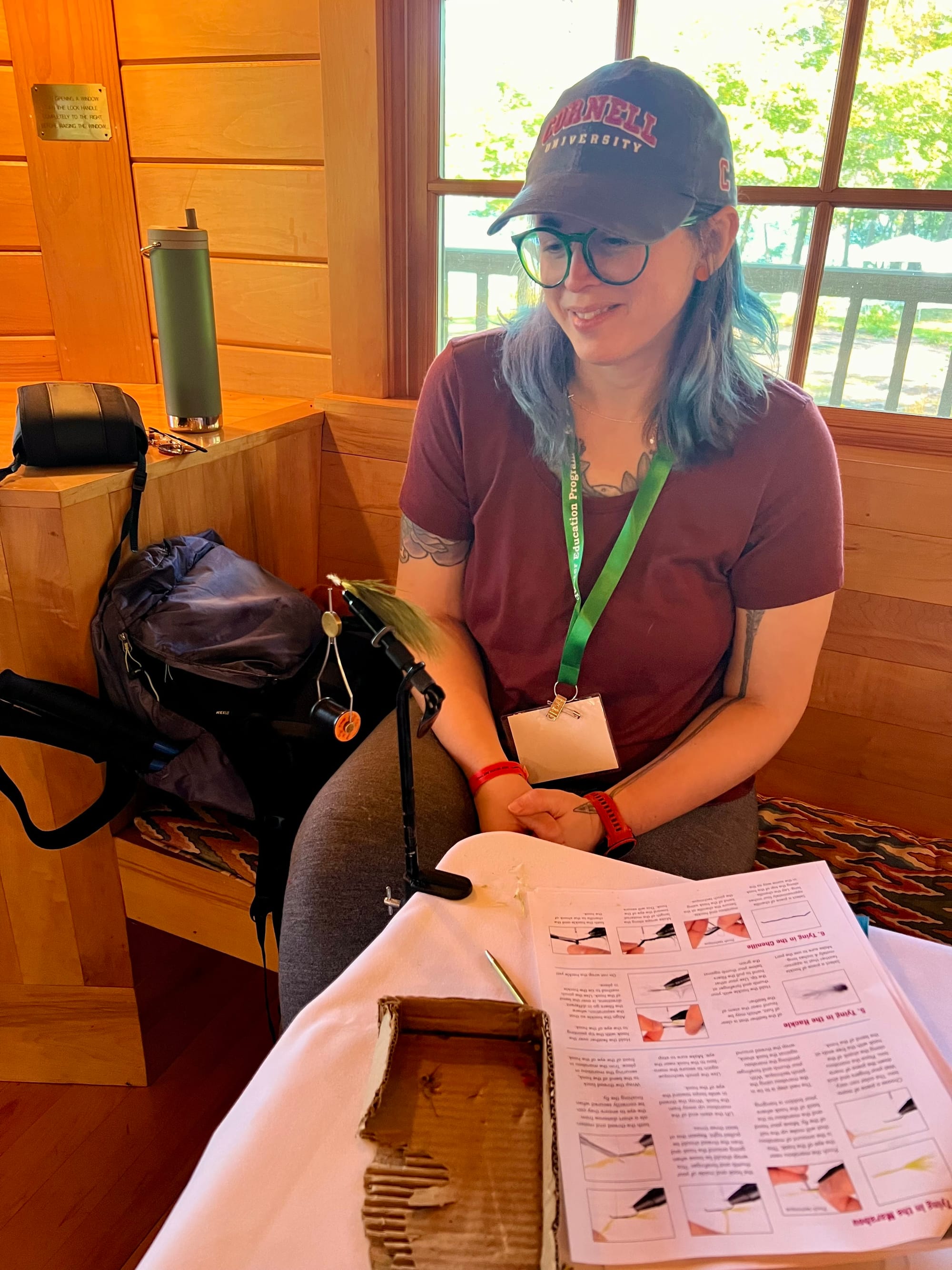
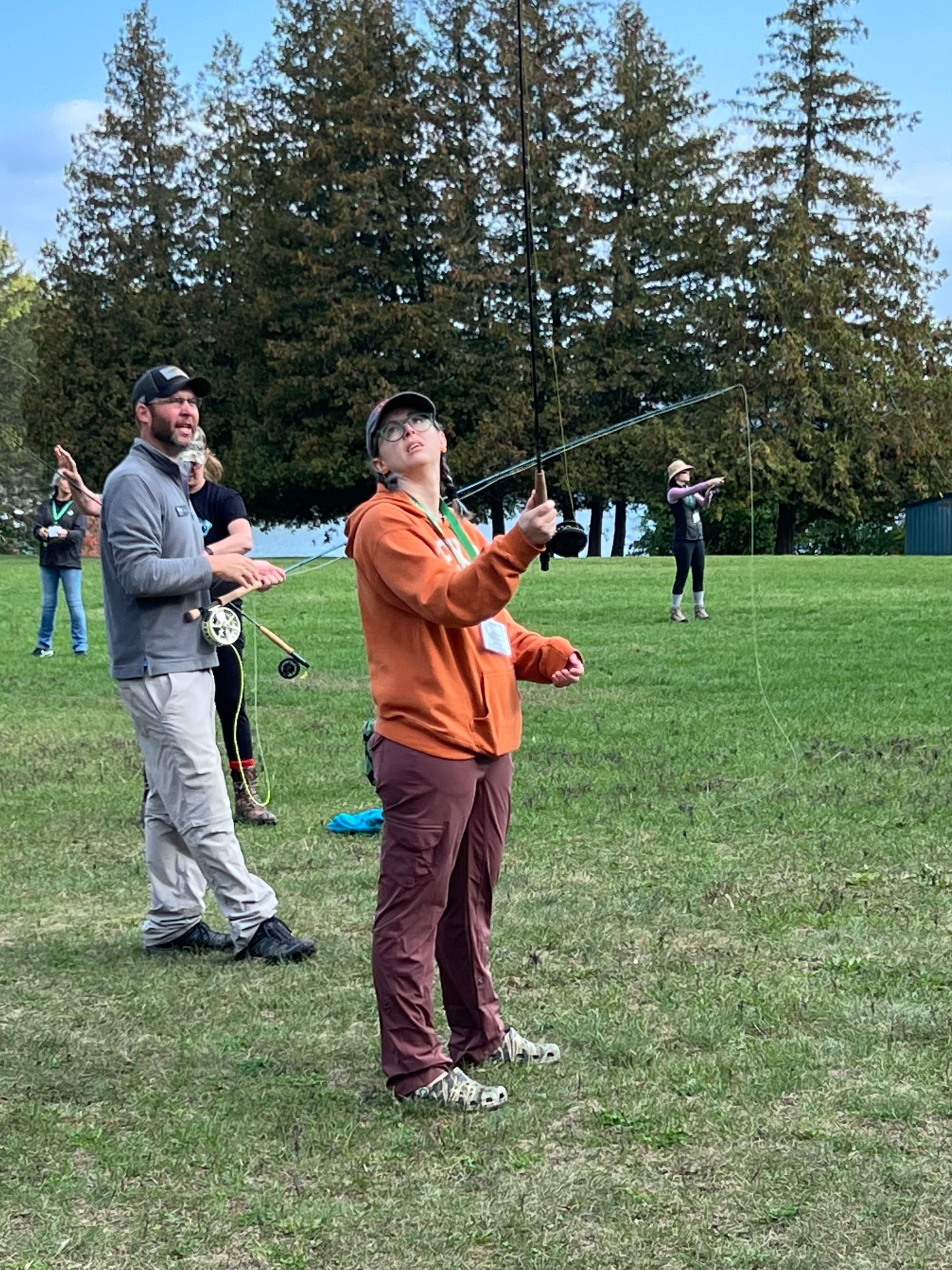

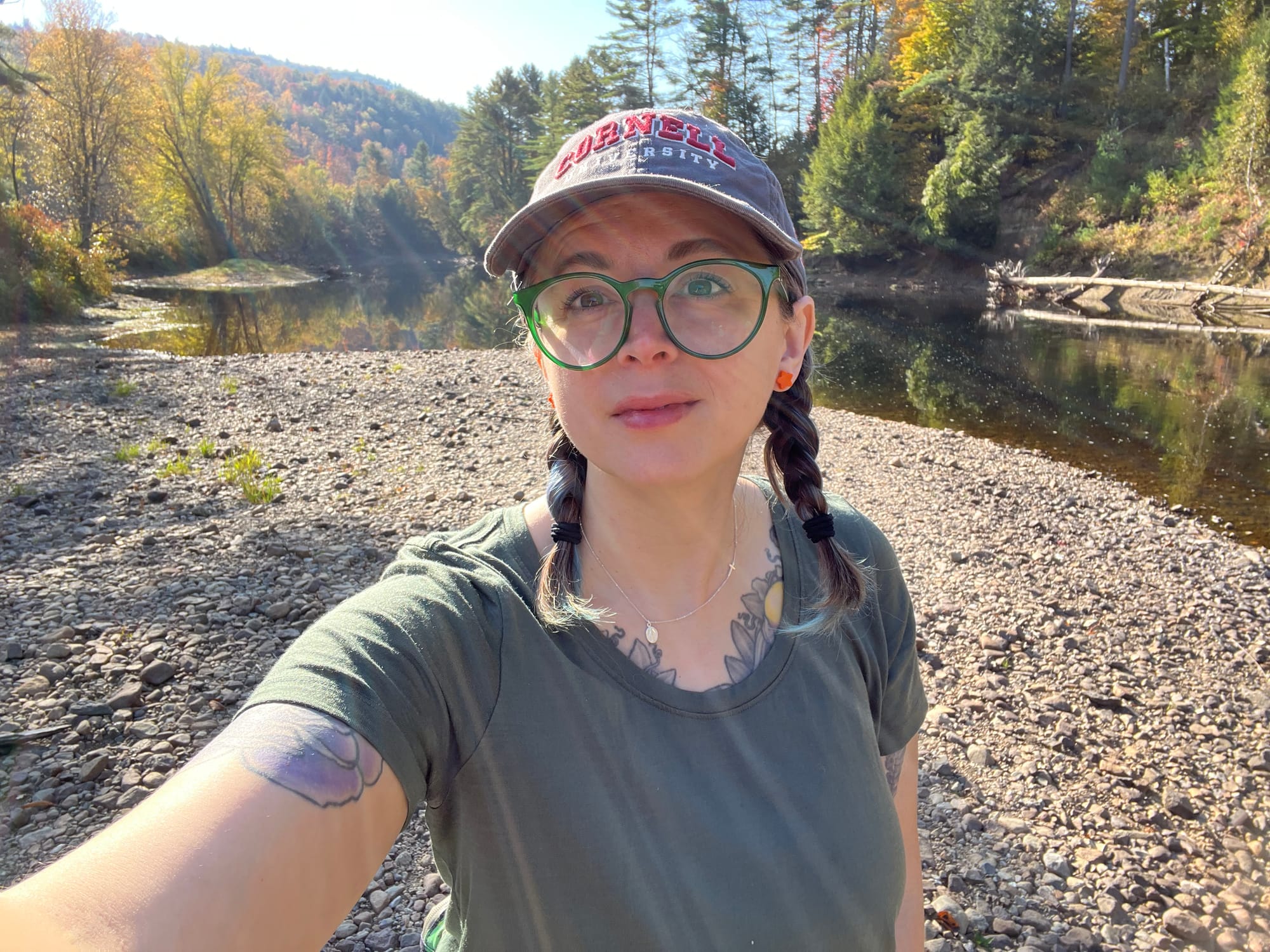

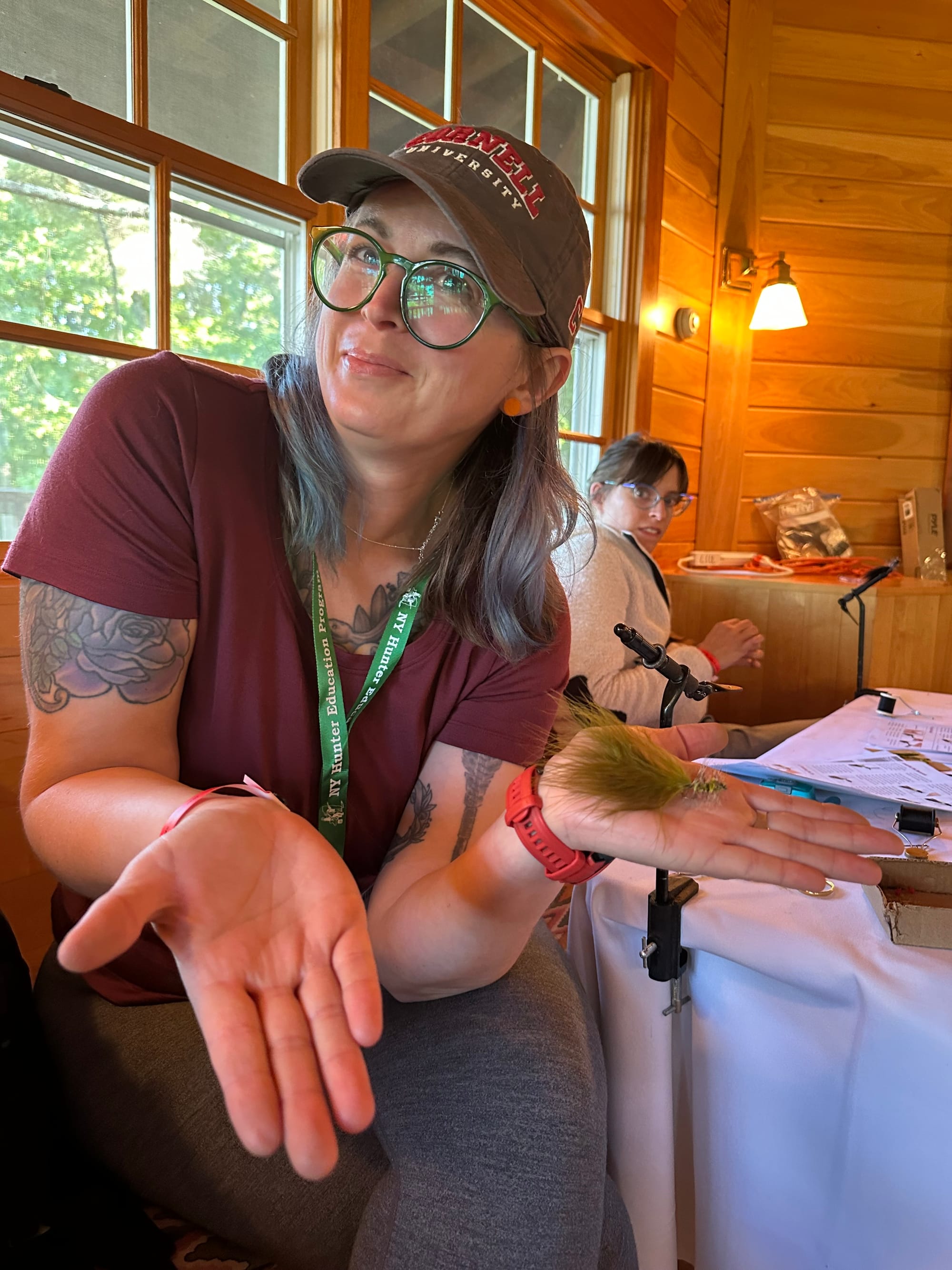
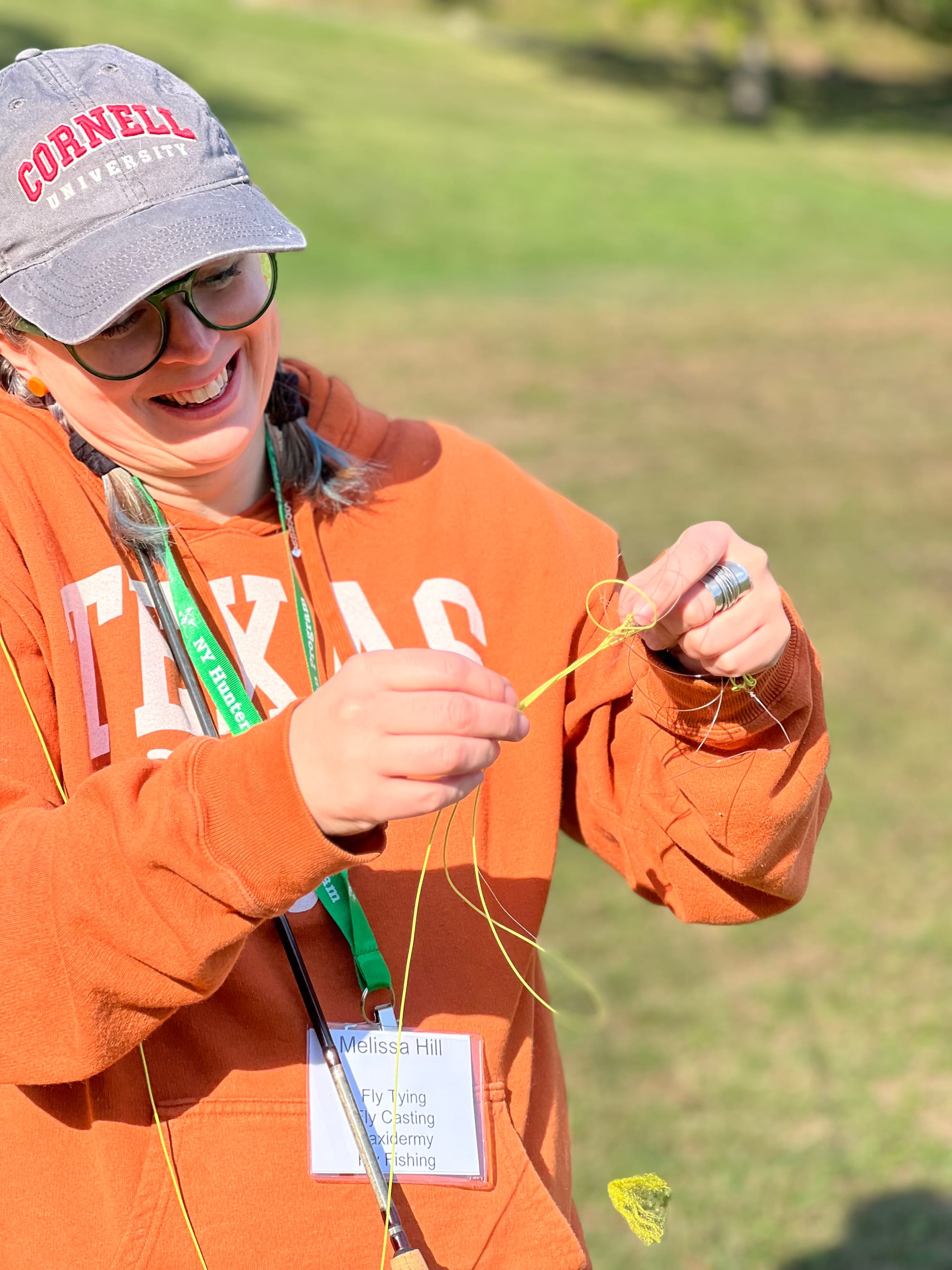
A highlight of the weekend was the taxidermy course. Yes, you read that correctly. I had seen the taxidermy at previous BOW weekends and was always curious to try it, so I was stoked to get the opportunity to attend that workshop. It was definitely one of the weirdest things I've ever done! Would I do it again? Maybe, maybe not. Probably not. But now I have a taxidermy rat that my kids can fight over after I die!
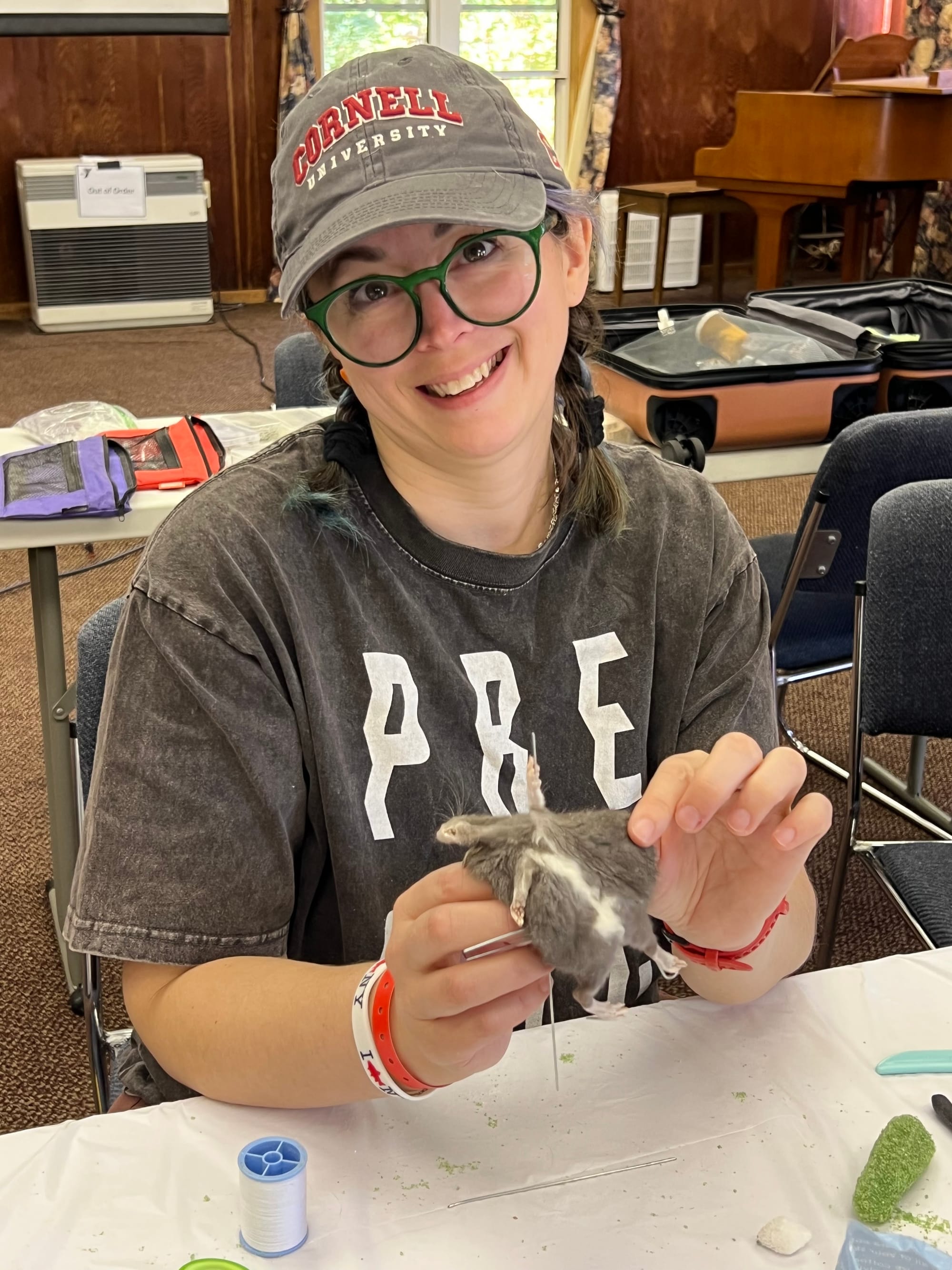
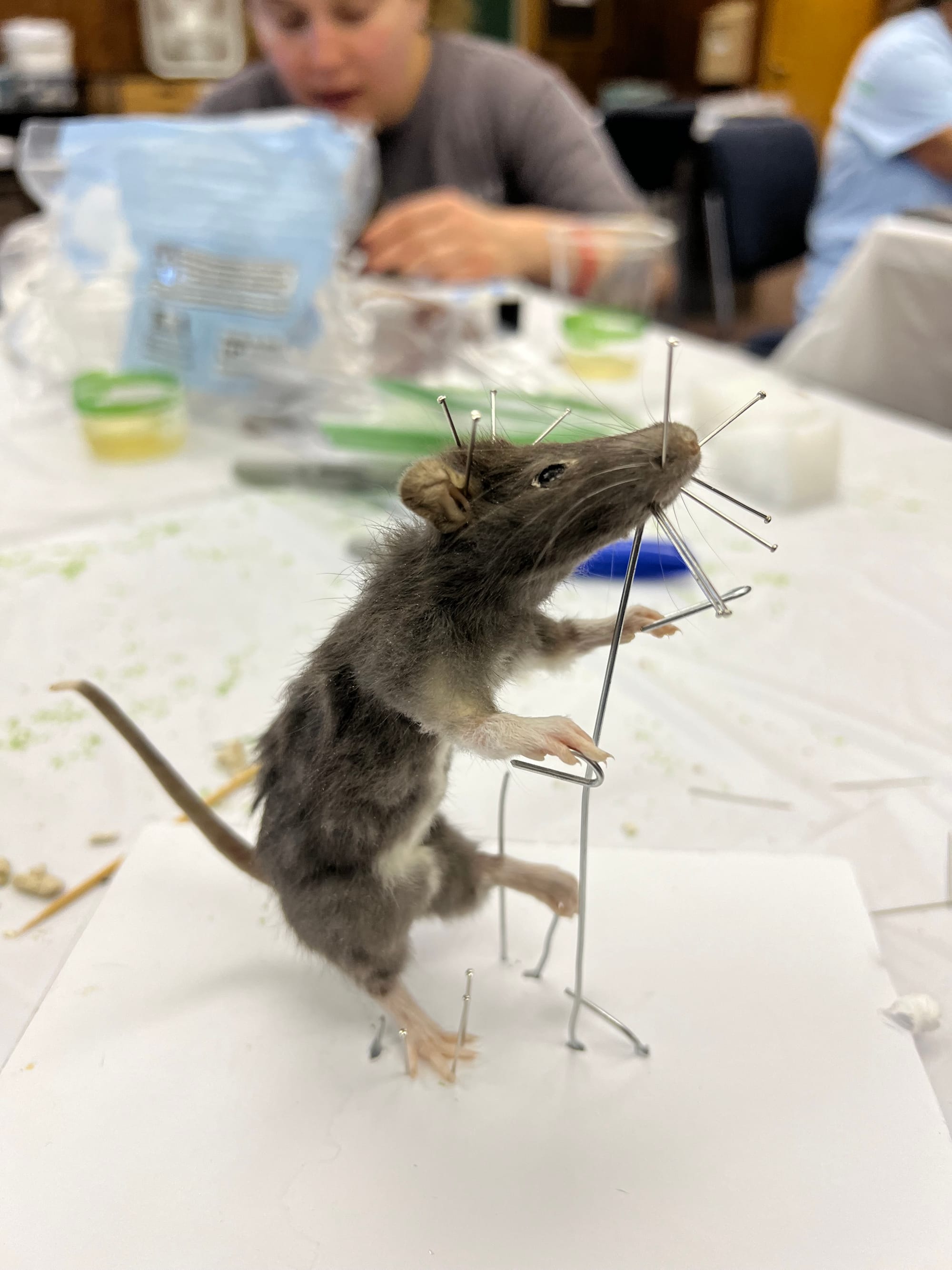
Super weird, right? 😅
Before I left, my partner joked that I was going away on a Hunting Wives weekend (the show is ridiculous and fun and terrible if you don't know the reference). I told him yes, if Hunting Wives were actually about women doing fun things together in the woods. We try new things, we inspire each other, we laugh–a lot.

Thank you NetGalley and Grand Central Publishing for sending this book for review consideration. All opinions are my own. The link to preorder this book is an affiliate link on Amazon. I am so very sorry to sell my soul to Amazon, but cigarettes are so very expensive in New York.
Frankie Elkin has a new case, one that takes the amateur sleuth and recovering alcoholic to the ghettos of Tucson, Arizona, where Afghan refugees are resettled to rebuild their lives after the trauma of losing their country, their family, their careers and achievements, to unspeakable violence and suffering after the fall of Kabul to the Taliban in 2021.
She’s there to find Sabera Amhadi – a brilliant mind with a dark secret or two – but a beloved mother and wife who has gone missing. Since the police aren’t helping, a desperate family friend turns to everyone’s favorite misfit, misanthrope, and missing persons specialist, Frankie Elkin, for help.
Lisa Gardner’s latest novel finds our plucky heroine once again out of her depth, over her head, and hanging on by a prayer to crack the case and rescue the girl. I first encountered the Frankie Elkin books with One Step Too Far — the second in the series, which I finished in about 48 hours. In that novel, I resonated with Frankie, and I really liked the dog*. Despite not knowing the whole backstory (I will read the first book, I just haven’t yet), I felt like she was an interesting and unique detective, and I was rooting for her to get out of the woods.
I eagerly picked up the third installment, Still See You Everywhere, and struggled to finish it despite myself. I briefly reviewed that one on Goodreads here. Going into Kiss Her Goodbye, I admit I had lowered expectations.
Gardner has written half of this novel from the perspective of Sabera, as letters to her daughter that document their family history, her childhood in Afghanistan, the violence she witnessed when her homeland fell, and the trauma she endured in the refugee camps. A good writer can transport you to new places and help you understand things you did not before; that’s exactly what Gardner has done with this book. For me, this part of the story was the highlight – the rich and heartbreaking world she created that illuminated a sliver of humanity that hasn’t had a voice or foothold in the zeitgeist, despite the events of 9/11 and the ensuing military operations in the Middle East. Americans love the noble idea of helping refugees – just NIMBY – which is what this story sadly brings to light.
The puzzle, the supporting cast, and the settings were fun, beautifully written, and thoroughly enjoyable. The red herrings and layers to this case, were fascinating, despite the fact that most of the action happens “offscreen” until about the third act. The end is satisfying, sad, and all of the things you want to feel when a mystery resolves… itself.
But that brings me to the detective. Or, in Frankie’s case – non-detective, unemployed but weirdly self-sustaining and able to afford a phone with a data plan – amateur missing person finder. I’ll allow that I’m a weirdo who reads crime fiction because the detectives fascinate me more than the crimes. Mysteries come and go – but a good detective you can follow for years.
I think I understand Frankie’s motivation for getting herself involved in these messes. But in this book and even the last one (Still See You Everywhere), Frankie’s story is completely overwhelmed in the plot. Gardner keeps her just comfortable enough to never have to actually face her problems – and her problems, dear reader, are so juicy! The trauma of her youth that was so tender and torturous in One Step Too Far is now a footnote (despite the past two novels dealing explicitly with mommy issues). Instead, Gardner has sprinkled in tidbits of anxiety so randomly, it seems that Frankie herself can barely be bothered to notice. Instead, her nightmares, which she mostly mentions instead of living, center on previous cases. Is that the point? Is Frankie losing herself in new terrible experience to avoid processing her old terrible experiences? When she finally loses herself in the misery of others, who will show up to find her? Unfortunately, she’s either not self-aware enough to examine these really critical character questions, or I’m reading way too deep. There was so much potential for that deep dive though, and glimmers of it through the last act. I want to root for Frankie! I want to see her get her shit together… or, and maybe the schadenfreude would be more fun – I want to see her lose her shit completely.
Overall, I’m torn on this book. Frankie Elkin could have never shown up, and in the end, the plot points would have played out much the same. Rather than driving the story, Frankie Elkin is mostly being driven at this point.
But, still a worthwhile journey the same.
*This is NOT a spoiler I think: The dog does not die. I had to check on that before I could finish it so I’m not afraid to finish it. In the three Frankie Elkin books I’ve read, no animals are harmed (thank you!).
From the show notes: In this episode of 'Jamie teaches Mel how to write a novel,' Jamie and Melissa delve into the intricacies of character development, discussing the importance of understanding main characters and their needs, and how they drive the story. They explore the differences between mystery and thriller genres, the role of supporting characters, and the process of writing exploratory drafts. Through anecdotes and practical tips, they emphasize the importance of character arcs and the creative freedom in writing. Join them for the final episode of Season 1 as they uncover the heart of any good story—its characters.
From the show notes: In episode 4 of the podcast 'Jamie teaches Mel how to write a novel,' Jamie and Melissa delve into the challenges of the 'messy middle' in novel writing. They discuss tactics, including the importance of outlining, to keep writers engaged with their story.
From the show notes: In this episode of 'Jamie Teaches Mel How to Write a Novel,' Jamie and Melissa dive deep into the fundamentals of novel outlining, focusing on the Plot Clock Method. They explore the differences between 'pantsers' and 'plotters,' the significance of an outline, and the exploration of character needs and goals. Jamie introduces the Plot Clock and breaks down how it works in four acts, emphasizing the importance of an organic plotting process. They tackle the concepts of binding points, inciting events, and the essential elements needed to create a well-structured and engaging plot.
Overcoming Writer’s Block and Literary Stage Fright
From the show notes: In this episode of 'Jamie teaches Mel how to write a novel,' Jamie and Melissa dive deep into the emotional struggles and expectations that writers face. They discuss the concept of writer's block, the importance of self-trust, and different methods to overcome creative resistance. Jamie shares insights on how starting points can shape the writing process and emphasizes the importance of organic, personal interaction in coaching writers. Melissa recounts her experience with stage fright and how the Meisner method helped her overcome it, leading to valuable parallels in writing. The episode concludes with a teaser for the next discussion on outlining and its role in novel writing.
Episode 1: Discovering Your Writer Identity
My friend Jamie totally scammed me into making a podcast with her. Then she scammed me into writing a novel.
We finished recording season 1 and this is the first episode of our very rudimentary show. Enjoy! Then go hire Jamie to help you write your novel!
From the show notes: In the inaugural episode of 'Jamie teaches Mel how to write a novel,' book coach Jamie and creative Mel dive into the idea of what it means to be a writer. They discuss whether a writing practice is necessary to identify as a writer, explore various methods of writing practice, and share personal experiences about their journeys with writing. Jamie offers insights into project-focused writing versus practice, and they conclude with thoughts on how to initiate and maintain a writing process. The episode sets the stage for future discussions, including tackling writer's block.
